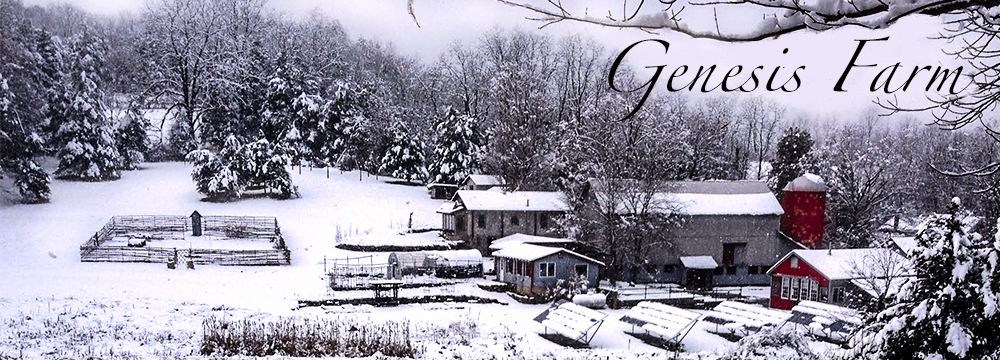
Strawbale Construction and Sustainable Energy
The Valley of Aluna's staff residence and accompanying outbuildings were all made using strawbale construction. The resulting structures are beautiful, functional, well-insulated and economical to build. The materials for the construction of strawbale homes are easily available in our rural area.
When local farmers use native warm-season grasses for their straw, and raise it organically, there are additional benefits. In warm months, native grasses provide important nesting and eating habitat for birds and other species. In cooler months, the grasses are harvested and used for straw.
We hope these structures will inspire others and believe that our local economy will benefit from an increased demand for strawbale structures and strawbuilding materials
Genesis Farm has planted a pilot field of warm season grasses and plans to further explore the possibilities for developing local farms and trades that are sustainable and ecologically sound.
Sustainable Energy, Recyclable Waste
Americans make up 5% of the world’s population, yet each year we produce about 25% of its waste and consume about 20% of the world’s energy. There is a lot that can be done at the individual and organizational level to address this consumption imbalance. Genesis Farm has taken steps to reduce our reliance on non-renewable energy and minimize household waste.
Genesis Farm gets much of its electricity through solar power. A large array of panels is installed on the eastern side of the office area, and a rooftop solar heater provides hot water to the strawbale house. A pellet furnace in the lower barn will provide heat to the office and strawbale house. The fuel pellets will be made from locally produced grass.
Both the strawbale house and the farmhouse have composting toilets. These toilets do not use any water, saving thousands of gallons of water a year. The strawbale house also has a graywater system to efficiently recycle the used water from showers and washing. All food scraps end up in our compost piles, and recyclables such as glass, metal and paper are carefully kept out of the waste stream.
Whenever possible, we have contructed our buildings with used or repurposed materials. Our inside living areas are furnished with secondhand or donated items.